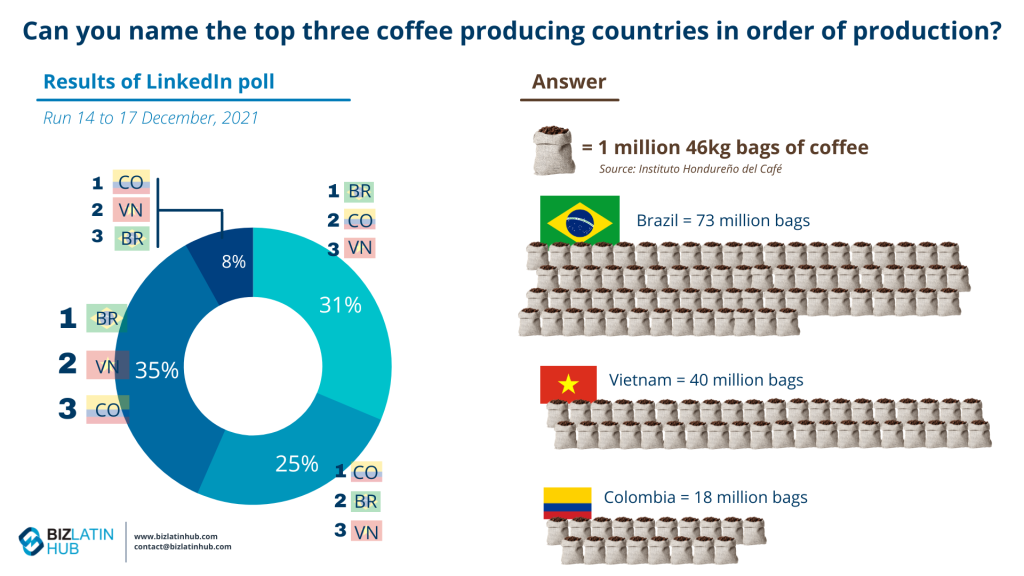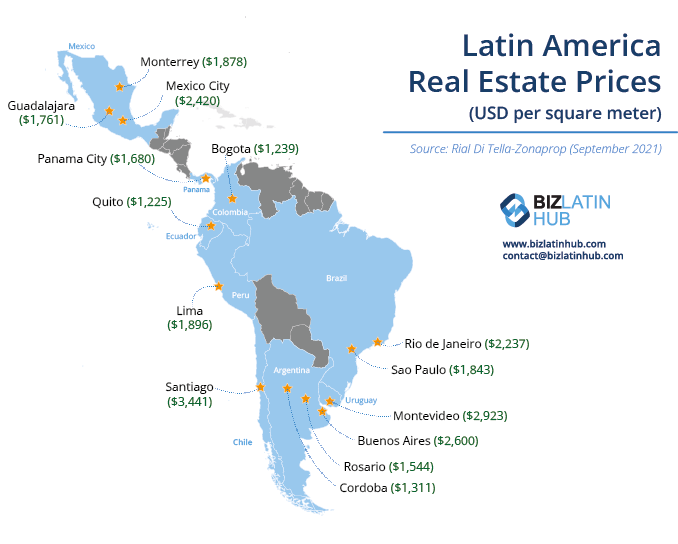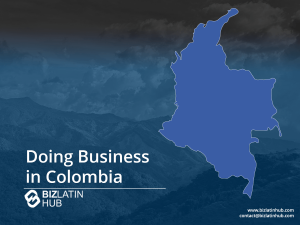When investing in and developing a business based on the production and/or trade of Colombian Coffee it is important to fully assess the risk levels of investment in that specific market. Simple factors such as being sure that the plantation you are buying really belongs to the seller can crucial. Other components such as knowing that the people working for you are trustworthy and will remain so when your back is turned will potentially save time and money. Being sure that sufficient labour and infrastructure are available in the area where you are thinking of developing trade is also something that needs to be considered. Bizlatinhub offers an analysis.
What are the risks when Investing in Colombian Coffee?

1. A Trustworthy Labor Force: Background Checks in Colombia
As an investor or an employer, you want to make sure that your employees are trustworthy and will be diligent as they help you achieve your business goals. This is something of an issue in Latin American countries and should always be considered before doing business in a country. Below, we have three different kinds of background checks you should consider to minimize the risk of your investment in the Colombian coffee industry.
Criminal Records
These records can be checked through the National Police. The outcome is a certification stating whether the individual has any outstanding legal matters with competent judicial authorities. This is especially important when ensuring that you do not employ the wrong person.
Fiscal Records
This is one popular procedure for background checks in Colombia. The Office of the Controller General certifies whether a natural or legal person has any outstanding fiscal responsibilities. The certificate can be viewed on this entity’s website after inputting the individual’s national identification number or the company’s tax identification number. The results are available immediately after the submission of the form.
Disciplinary Records
Through the website of the Inspector General of Colombia, companies can check disciplinary records for individuals and legal entities. With the individual’s or company´s identification number, a certificate is generated indicating whether they have any past or outstanding disciplinary processes.
2. Not getting caught out by the Colombian Tax System
Essentially, there are two types of taxes applied in Colombia; National Taxes and Local Taxes. With the collection and enforcement of National Taxes being undertaken by the Colombian Tax Authority (DIAN). The most important National Taxes are Value-Added Tax (VAT), Financial Transactions Tax, Stamp Tax, Income Tax and Wealth Tax.
These (and many other) taxes can be hard to keep up with, similarly to a majority of countries they have been rearranged and piled on top of each other for decades, for more details on taxes check out our latest article which provides an overview of Colombian taxes.
3. Buying Property in Colombia
The good news is that foreigners can freely buy property in Colombia yet will need to comply with the Colombian legal system. It is also very important to hire a lawyer of a trustworthy company to go over the land titles you are buying in order to make sure that they actually belong to their previous owner. This is especially relevant due to a number of displaced farmers during the conflict with the FARC, the worst case scenario is you paying a lot of money for a fake real estate title. Therefore it is important to follow the guidelines below.
- All transfers of title on real estate as well as all encumbrances must be done through the use of a public document.
- All taxes must be paid in order for a transfer to be legally effective. Any document of transfer or judicial decision pertaining to property must be recorded with the Real Property Registry.

The following registration procedures need to be carried out:
- Obtain a certificate or Certificado de Tradición about the history of the property for COP7,000 (US$3) from the Registry Office.
- Your lawyer will study the property titles, which takes around 5 days to complete and costs around COP1,113,000 (US$385). A certificate from the municipality should be obtained certifying that all municipal taxes on the property have been paid (Paz y Salvo Predial and Paz y Salvo de Valorizacion.)
- Obtain the following tax certificates: certificado de paz y salvo predial that states municipal property taxes have been paid from Secretaría de Hacienda del Distrito, and the certificado de paz y salvo de valorización which contains taxes related to increases in the value of the property due to changes such as constructions, roads, etc.
- The Notary prepares the public deed. The participation of the notary in the preparation of th is public deed is mandatory and his fees are 0.30% of property value. Moreover, the notary will also keep 1% of the value of the transaction from the seller as an advance payment to be applied as Income Tax (Retencion en la fuente).
- The Public Deed must be registered at the Registry Office. The Registry Tax (Impuesto de Registro) will then need to be paid. After registration, the new public deed is automatically sent to the Office of the Cadastre to register the change of ownership.
These procedures can be completed in around 14 days and need to be taken seriously.
4. Lack of Labour in Rural Areas
There is a clear lack of infrastructure in Colombian rural areas, the quality of roads (close to nonexistent in most places) means that it is hard to get labour to the farm. This means you should carefully choose your emplacement in a zone with a high availability of rural workers.
It is also a common struggle to find people who are ready to work on a farm because most Colombians find that prosperity and success will only come to those who live in the big cities.
5. Weather Concerns
The recent climate change raises concerns for Colombian agriculture: El Niño (draught) and La Niña (floods) have made it harder to grow coffee at lower altitudes, especially when the coffee plants are genetically modified and have no protection from either the sun or the rain. This, however, does not tend to be much of a problem when you are growing at higher altitudes with the traditional tree protection.
The reason for the high volatility of coffee prices is partly due to the fact that Brasil produces close to a third of the world’s coffee production. Occasionally the frost will ruin the coffee cherries which can take a huge amount of the world’s beans off the market, in turn creating a steep rise in Colombian Coffee prices. As a Colombian producer, this can be a downside if you are producing low quality and high quantity coffee due to being liable to market fluctuation (high price elasticity) which offers another reason to grow specialty coffee.
This is why many prefer to stay clear from the production side and stick to trading. This, however, means you have no real control over the long term consistency of your product which can lead to the loss of clients especially when concentrating on specialty and single origin luxury Coffee.
Best Ways to Invest in Colombian Coffee
If you are clever, rather than bringing large sums of money in as FDI you can “disguise” the investment as a loan. With a European bank loan, you can get the money into the country since the money is tied to an overseas bank. This means you can easily retract it in the case of a rapid political change. It is a safer and legal way of taking action which can be easily done with the help of a team of financial advisors, lawyers, and accountants.
Biz Latin Hub can assist you doing business in Colombia
At Biz Latin Hub, our multilingual team of corporate support experts is available to help you enter and do business in the Colombia coffee region, or any other part of this South American country. With our complete portfolio of back office services, including company formation, accounting, legal, and recruitment, we can be your single point of contact for doing business in Colombia, or any of the other 17 markets around Latin America and the Caribbean where we have teams in place.
Contact us today to discuss how we can help you achieve your commercial goals.
Or read about our team and expert authors.






